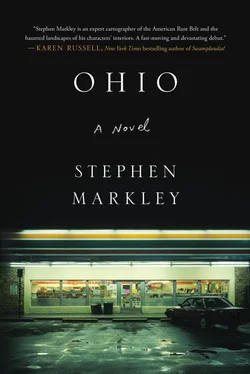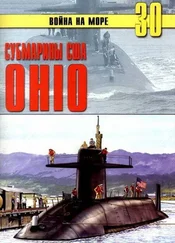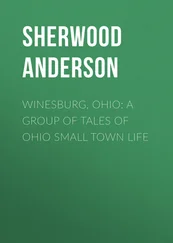Many were hungover from toasting Rick in the Lincoln Lounge the night before. Over cheap beer and well drinks, they shared classic stories, brave recollections, and dark musings. The rumors, the gossip, the urban legends ran wild. New Canaan had a curse, their peers decided. Their generation, the classes of the first five years of the infant millennium, they were all stepping through life with a piano suspended above them and bull’s-eyes on the crowns of their skulls. This was different from (but probably a companion to) the garbled small-town myth known as “The Murder That Never Was.” Whoever came up with that particular phrase wasn’t much with grammar, but it stuck nevertheless, debated and ruminated in bars, salons, and diners, sometimes whispered, sometimes not—particularly that night when the speculation was belted out across the dim pall of the Lincoln. The Murder That Never Was held that there was someone who went missing or not, who died accidentally or not, who was gruesomely murdered or not, who faked his own death or not, who made off with a heist or not, who burned rubber out of town laughing like a demon or not. Now in the light of day, in the queasy suffocation and sluggish eternity of a hangover, how silly that all sounded.
The driver pulled his truck to a stop, bringing the flatbed in front of a stage that had been borrowed from the high school and erected beneath the square’s hundred-year oaks. On that stage, Rick’s parents and his brother, Lee, stood among a scrum of friends, family, the mayor, the sheriff. “Amazing Grace” played over a jury-rigged PA, and as the final chords reverberated, the pastor of the First Christian Church, where Rick and Lee had so frequently fidgeted, farted, and fought with each other every Sunday (two of the most disruptive kids to ever grace the pews, according to most), delivered the opening prayer. “Jesus, take your son Rick into your arms, and give his family and friends the strength to endure this loss,” he said. Boilerplate stuff.
Following that, four people were to speak that day.
One of them, Rick’s high school girlfriend, would never make it to the mic. Kaylyn Lynn was so stupefyingly high nothing seemed to matter at all. The wind whipped unwashed hair about her pretty face and bit through Rick’s football jersey (#25), which he’d given to her after the team banquet his senior season. She hated that Rick’s parents had asked her to speak. There was no fairy tale here. They broke up the summer after senior year. She basically cut out Rick’s heart and ate it in front of him. Pawned the engagement ring he tried to give her. Fucked his friends. Told him how much she loved him only to make sure he’d never really leave her. The pastor’s prayer wound to a close, and she watched a crow pick apart a piece of the flag cake selling outside of Vicky’s. There was red and blue frosting all over the bird’s beak as it dug into this treat smeared across the asphalt. Ill with guilt, when her time came, Kaylyn simply kept her eyes lowered and gave Rick’s parents a panicked shake of her head. Hid her high with bereavement. She rattled and sucked on her inhaler, her eyes as vivid as Cassiopeia.
Marty Brinklan stepped to the microphone, stroking his bleach-white mustache, his face weary, good marble covered by bad clay. He looked to his wife sitting in a metal folding chair, squeezing a handkerchief the color of a wet plum and staring catatonically at the ground.
“Husband, Christian, patriot, public servant,” said Marty. His eyes flitted up from the piece of paper he gripped, peeked at his friends and neighbors. “But most importantly, once you’re a father… that’s what you learn about being a father: it becomes the first thing you are, and everything else had better make way for it. Once you’re a father,” he repeated.
Marty wanted to be done with the public part of this. He was good at quarantining his grief, saving it for appropriate moments when he could have it to himself, take it out to tenderly care for like an antique pistol. He wasn’t sleeping or eating well or taking care of himself. Hell, he’d even taken a couple of drinks. The first day of his workweek he’d gotten a call about a nineteen-year-old girl, dead of an overdose, found facedown in an overflowing toilet. A gruesome scene. Then he’d served an eviction for one of Rick’s former teammates from the football team, a wide receiver who wept and cussed him out until Marty found himself putting a hand on the butt of his gun. The former wide receiver looked at him just before he tore out of the driveway and sneered, “Rick would be so proud, Marty. Too bad he couldn’t see this.” That jolly job had been just yesterday.
Jill Brinklan felt like she was on one of the cruelest reality TV shows ever dreamed up. She acknowledged Marty and his speech with a tight smile and nod, but she couldn’t meet his eye. She hadn’t been able to look at him since they got the news. She also found she couldn’t stand very well, hence her sitting in the metal folding chair. Lately, when on her feet, she sometimes lost her equilibrium. Squeezing her handkerchief, she stood, thanked everyone for coming, for being so kind, and sat right back down. She wondered if she’d ever forgive her husband for his pride. This was what pride got you. Anyone who’d read the Bible knew that. That morning, Marty had asked her which shirt he should wear, and she’d hissed at him like a cat and fled their bedroom. She went to the kitchen, obsessively running her hands over the stove because she was thinking of apple turnovers. Before Lee’s or Rick’s football games, she’d always made apple turnovers in the morning. When they first began the tradition, she let Lee handle the skillet, stirring the apple slices in butter, while Rick flattened the dough with a pizza roller. How funny little boys looked cooking, the way they got hyperventilatingly excited at each step. And later when they were ogre-like teenagers, total galoots, how amusing it was to watch them spread the apples daintily in the squares of dough and pinch them shut. The obscene exchanges she had to regulate—how did they even dream up such vulgarities? ( Rick, wash your hands, we know your thumb was knuckle-deep in your ass last night; I’ll dip my scrotum in your eye, Lee. ) That morning, stroking the stove, all of this came over her in one of those crippling waves that arrived as unpredictably as each freak gust of wind. She went out to the backyard, staggering past her garden to the fire pit, which still had singed Bud Light cans resting in the ashes from when Rick was last home. She lost her balance and sat down in the grass. Wanting to dig down through layer after layer of dirt until she found her son, until he was safe, until she could no longer smell this long-gone scent of burning.
Of the four planned speakers, however, the one who truly broke the hearts of the assembled was Ben Harrington. Ben, a college dropout struggling to make it as a musician, hated coming home. To him, downtown New Canaan had this look, like a magazine after it’s tossed on a fire, the way the pages blacken and curl as they begin to burn but just before the flames take over. How vibrant and important and tough and exciting this place had seemed through the scrim of boyhood, back when he, Rick, and Bill Ashcraft rode their bikes all over kingdom come. They knew every spigot where you could fill up a water balloon and the best spot in the Cattawa River to go swimming and the best hill for sledding and the best wall to use for pushing on a guy’s chest until he passed out and had weird, twitchy, oxygen-deprivation dreams.
On that stage, Ben told a simple story from their boyhood. Once, on the banks of the Cattawa, wading around, feeling the mud between their toes, Rick had caught a frog. He held the squirming trophy in both amazed hands while Ben, blond locks whiplashing over his eyes, stumbled away.
Читать дальше












